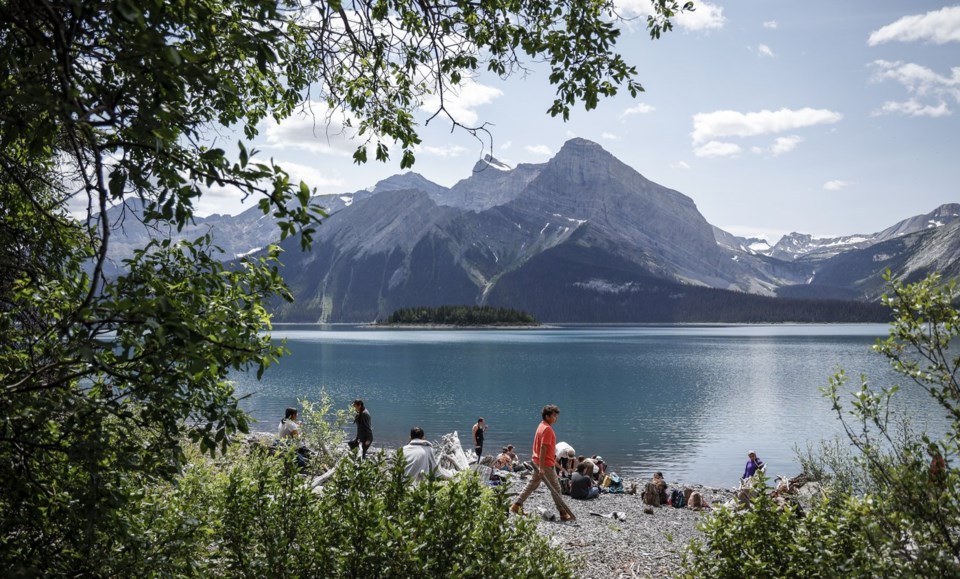EDMONTON вҖ” Canadian summer camp organizers say they expect a ripple effect of bolstered emergency plans and preparations after more than two dozen campers and counsellors were killed by severe flash floods in Texas.
"I would be shocked if there aren't a lot of people that are looking at this and taking pause, even reflecting on their own policies," said Brad Halsey, a summer camp director and board vice chair of the Alberta Camping Association.
"I am pausing and questioning, 'Are our policies up to snuff?'"
Halsey, who helps run a summer camp north of Edmonton, said unlike last week's disaster that struck Texas and Camp Mystic, wildfires prove to be the main threat for his camp and camps across Alberta.
"But at the same time, it really is the same thing whether it's fire, flood, whatever. You still need to have the same sort of plan," he said.
"Do leaders know where to go? Do we have the muster points? Do we have the evacuation plan in place? And have we practised it?"
For Alberta's summer camps, Halsey said the overwhelming answer to all of those questions should be yes.
The Alberta Camping Association, a voluntary regulatory body, sets standards for things like safety and emergency preparedness for member camps, of which there are more than 40.
Halsey said member camps are required to have crisis and disaster plans in place, trained and qualified staff to execute those plans and proof that regular practice drills occur.
"There's a bit of a nuance ultimately depending on the needs of that community," he said, noting that emergency plans will differ for every camp based on location and amenities like nearby water bodies.
Nearly every province has its own version of a regulatory body like the Alberta Camping Association to regulate summer camps, and Halsey said some insurance companies require camps be members in good standing.
There's also a national body вҖ” the Canadian Camping Association вҖ” which oversees the provincial bodies.
In some provinces, such as Ontario, there's provincial legislation that mandates camps to have safety plans.
"In Ontario, I could safely say that we have put our heart and soul into emergency and crisis preparedness," said Eric Shendelman, past president of the Ontario Camps Association.
Shendelman, an expert on drowning and injury prevention who runs a swim school in Toronto, said he expects summer camp organizers across the country to be taking stock of their own plans and readiness following the news out of Texas.
"It's amazing how a traumatic scenario like that, even if it's across another nation, does have this ripple effect," he said.
Shendelman said he wasn't sure if any enhanced planning measures would've protected campers in Texas.
Camp Mystic had its own emergency plans in place вҖ” plans that inspectors had signed off on two days before the flooding.
It's not clear if staff followed those plans, as campers weren't moved to higher ground when the U.S. National Weather Service issued a flood watch the day before.
Shendelman said Canadian camp organizers are considering what they would've done if put in a similar situation.
"We've heard from a number of directors who are quite concerned," he said. "We are doing our very best to find the experts that can help in this flood management area."
Back in Alberta, the Texas flooding comes just as Darielle Rairdan and her co-director of Bar Harbour Camp train staff ahead of the busy summer season.
Rairdan said the Texas tragedy has helped drive home the point that emergency preparedness needs to be taken seriously.
"We don't just talk about these things to talk about them," Rairdan said. "If something like that happens, you need to know what we're doing."
She said that for Bar Harbour, 170 kilometres south of Edmonton, wildfires are the biggest risk every year.
Rairdan, who is also an Alberta Camping Association board member, said in her 20 years of attending Bar Harbour вҖ” both as a camper and employee вҖ” a fire has never harmed the camp or led to an evacuation.
But that doesn't mean the camp thinks it won't happen someday.
"We need to make sure that we know what we're doing so that, if we do happen to have a huge wildfire, we don't end up in a situation like that where we have all these casualties,вҖқ she said.
вҖ”With files from The Associated Press
This report by The Canadian Press was first published July 9, 2025.
Jack Farrell, The Canadian Press



